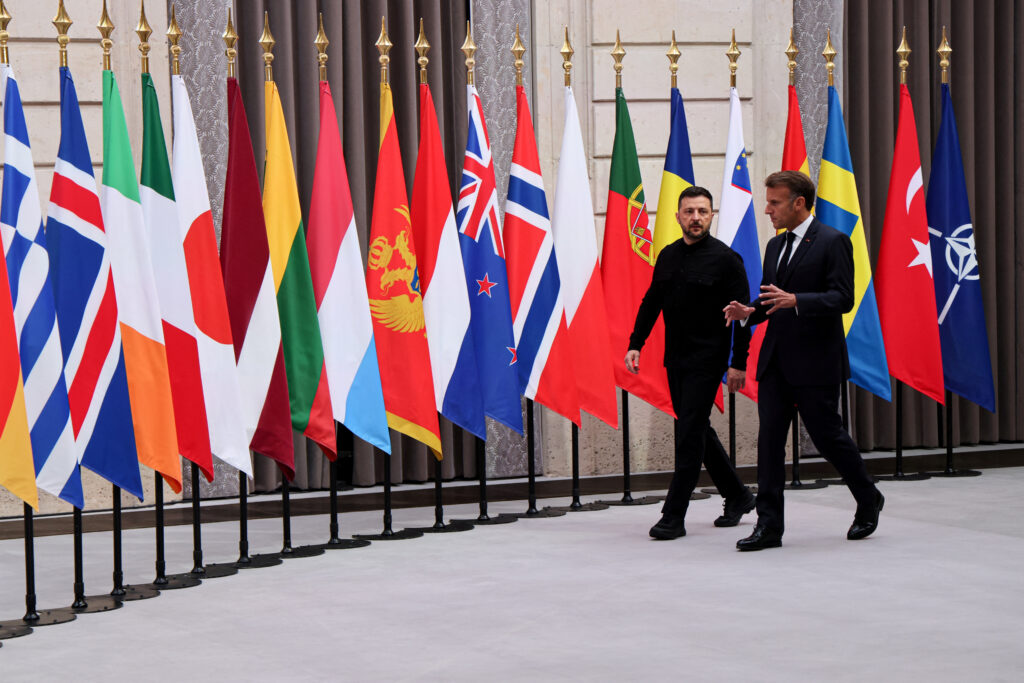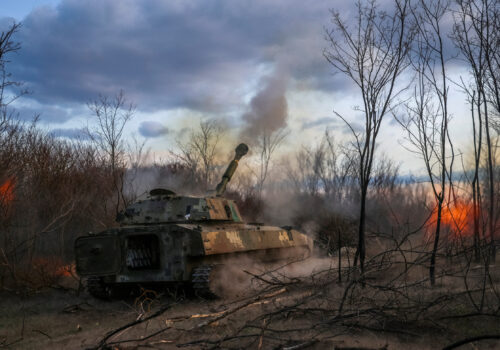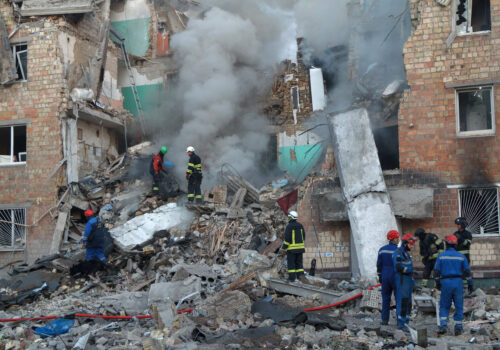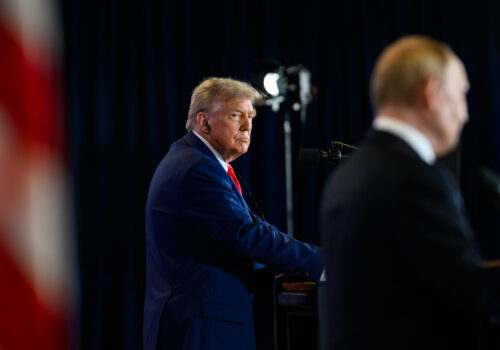JUST IN
“Nous sommes prêts,” French President Emmanuel Macron said on Thursday. “We are ready.” Speaking after a meeting of the “Coalition of the Willing” in Paris, Macron announced that twenty-six European nations had agreed to participate in a postwar force by air, land, or sea to ensure Ukraine’s security and deter further Russian aggression after a peace agreement is reached between Kyiv and Moscow. What would fulfilling this commitment look like in practice? And how should the United States view this development amid its efforts to end the war? We asked our coalition of experts, who were willing to provide their responses below.
TODAY’S EXPERT REACTION BROUGHT TO YOU BY
- John E Herbst (@JohnEdHerbst): Senior director of the Atlantic Council’s Eurasia Center and former US ambassador to Ukraine
- Léonie Allard (@AllardLeonie): Visiting fellow at the Atlantic Council’s Europe Center, currently in residence from the French Ministry of Armed Forces
- Jörn Fleck (@JornFleck): Senior director of the Europe Center and former European Parliament staffer
What will this commitment look like in practice?
- John points to Macron’s announcement that a security force “will deploy once a cease-fire is reached,” with France “one of several countries that has declared its willingness to supply troops.”
- “Macron has definitely been a leader on this effort,” says Léonie, both in organizing the coalition along with the United Kingdom and in talking about putting boots on the ground, which the French president first put forward in February 2024 by saying “nothing is ruled out.” Since then, more countries have come on board.
- However, important specifics are still unclear, such as “in what capacity, in what numbers, and for what specific guarantees” each country would contribute to Ukraine’s postwar defense, says Jörn. It is likely, he adds, that “not all those who are part of the Coalition of the Willing are going to be willing to put troops in Ukraine,” noting that Germany has been “hedging” on its level of involvement in security guarantees for Kyiv.
Sign up to receive rapid insight in your inbox from Atlantic Council experts on global events as they unfold.
What does this mean for Ukraine?
- “That over two dozen countries are willing to contribute to security guarantees in some capacity is a good sign” for Ukraine, says Jörn. But the war is still ongoing.
- Until a cease-fire is established, Jörn tells us, Europe must focus on “providing Ukraine with the adequate capabilities to defend itself” and “sending a message” to Russian President Vladimir Putin “that Europe is united and ready to act for Ukraine.”
- European leaders’ “end goal,” adds Léonie, “is a strategic victory for a Ukraine integrated in the Western security order.”
What should the United States do next?
- “Today’s meeting is an achievement for US President Donald Trump,” John argues, as Trump has long viewed European troops as “key to keeping the peace in Ukraine.” Now, he says, European leaders “have taken this idea and are making it a working proposition.”
- Today’s announcement was “arguably as much about convincing Putin of Europe’s seriousness as it is about convincing the White House,” says Jörn. Now, he adds, “Europe’s leaders must keep up the level of effort, agency, and ambition they displayed at the White House on August 18” when they joined Ukrainian President Volodymyr Zelenskyy.
- Next, says John, the Trump administration should “actively assist” European efforts. While Trump has said he will not deploy US troops in Ukraine, other options for US assistance remain on the table, including using US contract soldiers and supporting European troops with US airpower. “A visible, robust US role is essential to the deterrent power of the force and therefore to achieve the administration’s goal of a stable peace.”
Further reading
Wed, Sep 3, 2025
Europe’s best security guarantee against Russia is the Ukrainian army
UkraineAlert By
With Europe militarily unprepared and deeply reluctant to confront the Kremlin, a strong Ukraine currently looks to be by far the most realistic deterrent against further Russian aggression, write Elena Davlikanova and Yevhenii Malik.
Wed, Sep 3, 2025
Dispatch from Kyiv and Warsaw: Security is the first answer to Russia’s aggression
New Atlanticist By Shelby Magid, Mercedes Sapuppo
A visit to the capitals of Ukraine and Poland puts recent diplomacy in Moscow, Anchorage, and Washington to end Russia’s war in Ukraine in perspective.
Tue, Sep 2, 2025
It’s time for Trump to put maximum pressure on Putin
Inflection Points By Frederick Kempe
The US president can have no further doubt about who he’s dealing with in the Russian president. There’s also little doubt about what is needed to end the war on terms that secure peace and preserve Ukrainian freedom.
Image: French President Emmanuel Macron and Ukrainian President Volodymyr Zelenskiy walk together, past flags, to chair the Coalition of the Willing Summit at Elysee presidential palace in Paris, France, September 4, 2025. Ludovic Marin/Pool via REUTERS.




